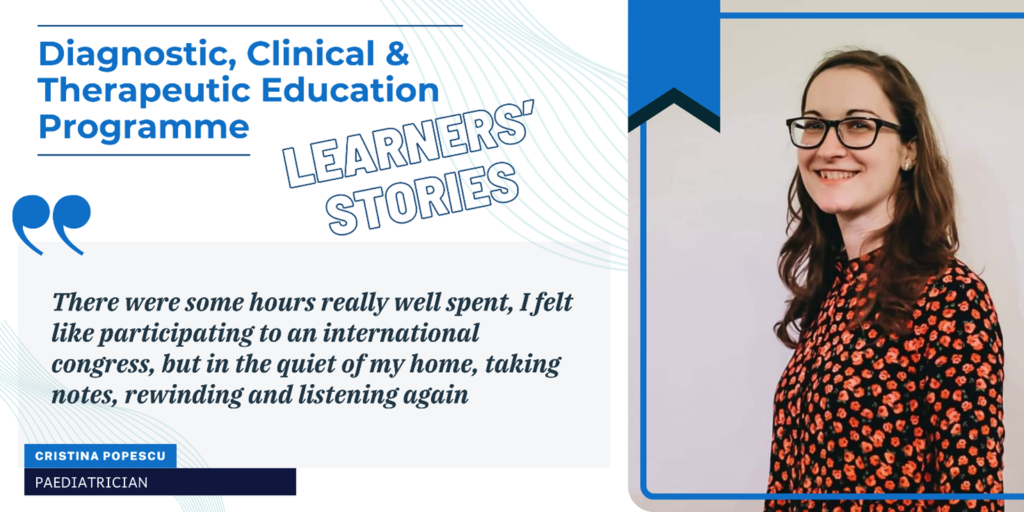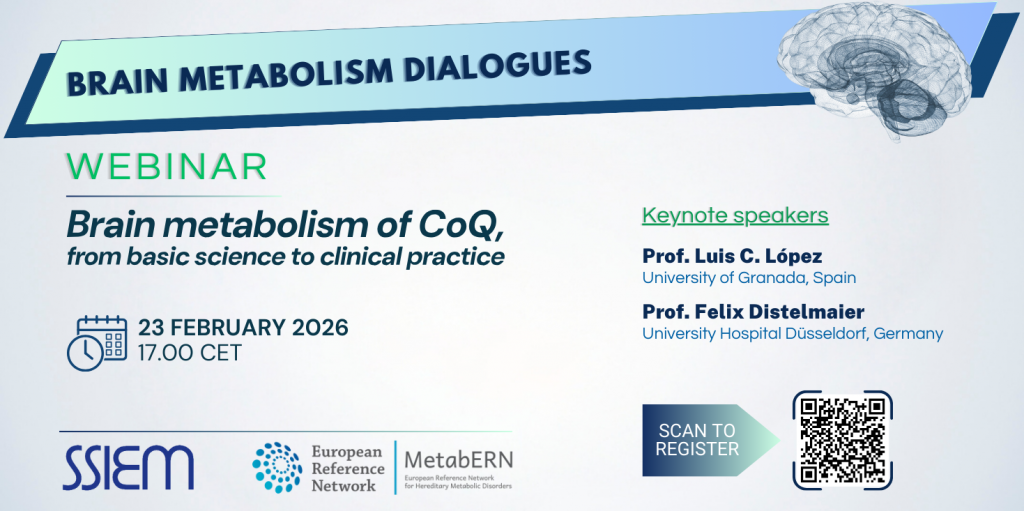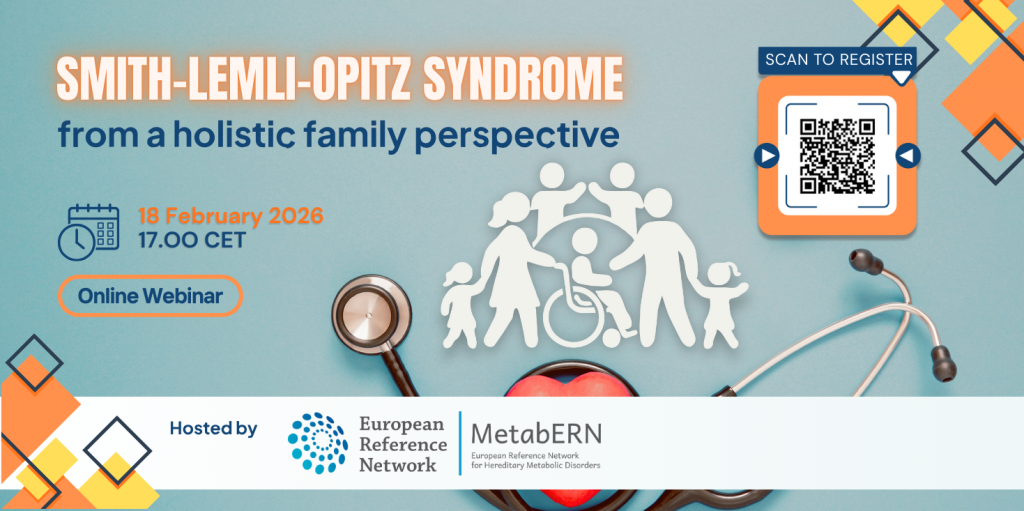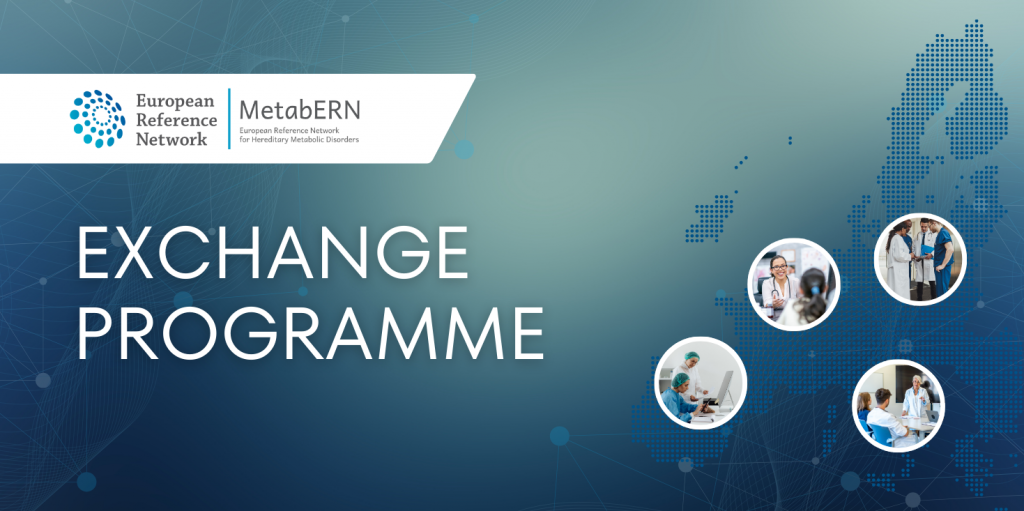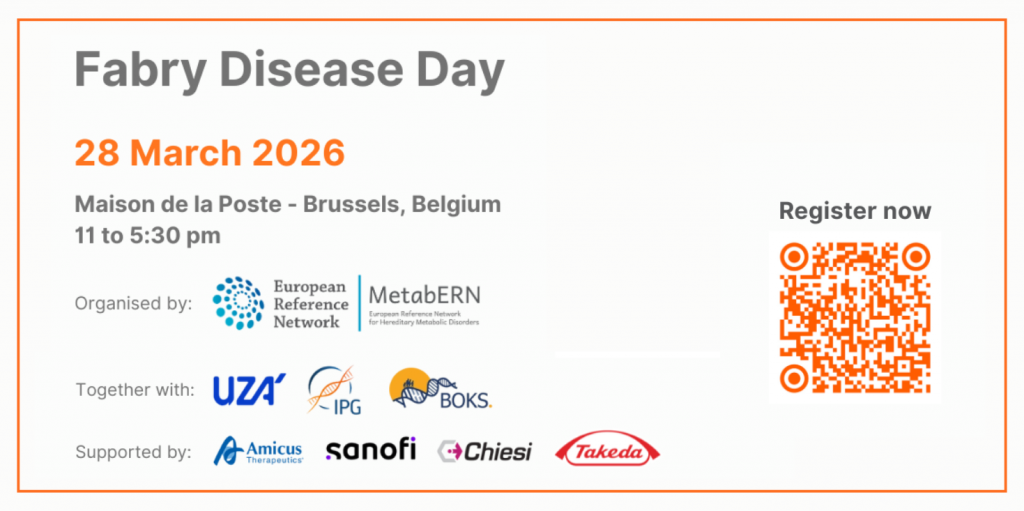Education on rare diseases, including Inherited Metabolic Disorders (IMDs) is key for knowledge sharing among healthcare professionals. MetabERN’s recently launched Diagnostic, Clinical and Therapeutic Education Programme (DCTEP) on IMDs aims to create and train a new class of professionals and provide them with expert knowledge and practical experience in the phenotypic spectrum, diagnostic and clinic work-up, treatment and long-term management of IMDs.
To find out more about the learners’ perspective, we asked some of the first physicians who completed the full programme to share their stories about their learning experience with the DCTEP.
Cristina Popescu, paediatrician from Bucharest, Romania, has also completed her second residency programme in genetics and was one of the first participants of the DCTEP to complete all 11 modules of the programme.
Q: How did you find out about the DCTEP and what motivated you to enrol?
“I found out about DCTEP from one of my colleagues. Metabolic diseases are starting to be more known, diagnosed and because treatments are available for some of them, I was interested in finding more information from experts working in this field.”
Q: Which specific subjects, diagnostic or therapeutic approaches covered in the course did you find most valuable and what other topics would you like to see covered in the future updates of the programme?
“First of all, the first module provides really good explanations about inherited metabolic diseases and is really practical and useful. Then, the algorithms in managing hypoglycemia (with hepatomegaly, ketones, lactate) and hyperammonaemia comes very handy when you have to manage these kinds of patients. I also appreciated all the clinical cases.
I am interested in a more detailed module about nutrition in specific metabolic diseases.”
Q: How did this course balance theoretical knowledge with practical applications in the medical field?
“Every module has a very good amount of practical application. Also, the quizzes are practical and I appreciated them.”
Q: In what ways has the course enriched your scientific expertise, and how do you envision applying this knowledge in your research or medical practice related to inherited metabolic diseases?
“The course comes with updated info about diagnosis and treatments in metabolic disease. Sometimes I see a patient and think of a metabolic disease but not sure how to manage her/him. This course helped me also with this. I will use the algorithms in patients with hypoglycemia, high lactate, spleno/hepatomegaly, neurological and psychiatric disorders, genetic diagnostic.”
Q: Overall, how do you describe your experience with the DCTEP and how likely are you to refer the course to a colleague?
“There were some hours really well spent, I felt like participating to an international congress, but in the quiet of my home, taking notes, rewinding and listening again when I didn’t understand something, going back when I wanted to make connections between modules and diseases. I recommend this course to all my colleagues in paediatrics, family medicine, genetics, internal medicine.”
As a network, we are extremely grateful to all our members who participated in the development of this programme together with Professor François Eyskens, who is leading this initiative and to the numerous learners of DCTEP who are dedicating their time to expand their knowledge in the IMDs. More DCTEP Learners’ stories will follow soon – stay tuned!
